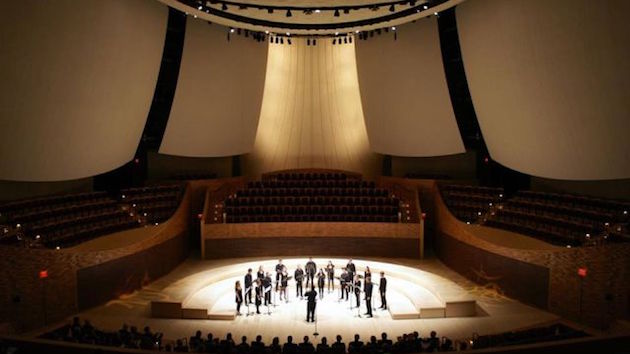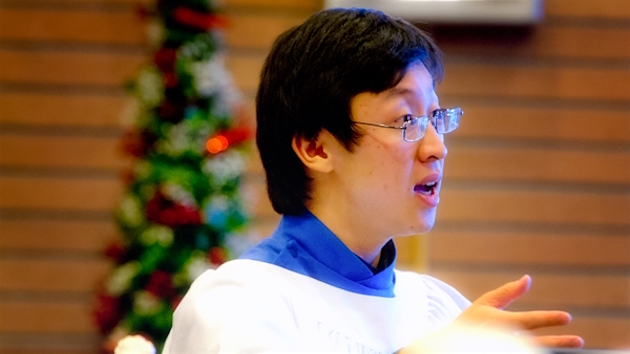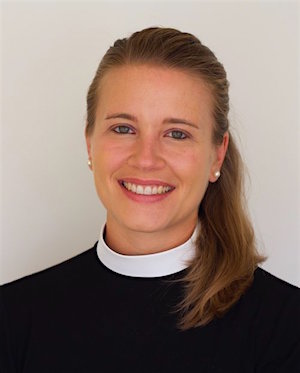
Eric Tuan’s Convivium Choir, whose last concert had the unusual theme of “Living Buddha, Living Christ,” is now getting ready to deal with a subject that’s prominent in headlines — and seemingly difficult to relate to choral music.
Convivium will present “#MeToo: Contemplating the Movement in Story and Song” in its home, Christ Episcopal Church in Los Altos, at 4 p.m. on May 13. Admission is free and childcare will be provided.
The program, says Tuan — music minister of Christ Episcopal Church — “brings together music, spoken word, and storytelling to explore the movement that is shining a light on the pervasiveness of sexual violence within our culture.”

Tuan is putting the program together with Claire Dietrich Ranna, the rector of the church, also co-producer and co-writer of the award-winning documentary film Miss Representation.

“When Rev. Claire and I first embarked on this project, I was worried that finding appropriate choral music would be challenging,” Tuan says. “But as I dove deeper into the stories that we were weaving together into this powerful tapestry of voices, I realized that the human emotions brought up by these experiences are both deeply particular and deeply universal.
“Sexual violence is so widespread in our culture, and touches on all aspects of the human experience: anger, despair, hope, and that deep-seated need to share our stories.”
The program includes Olli Kortekangas’s performance-art piece Ikikaiku, which weaves together song, speech, and movement, Dolly Parton’s ballad “Light of a Clear Blue Morning,” works by Samuel Barber and Olivier Messiaen, plus gospel and pop music.
Women composers featured in the program include Carly Simon, Eliza Gilkyson, Ingrid Stölzel, and Rosephanye Powell. Stölzel’s music is often performed by Convivum.
“What the #MeToo movement has brought to light is not only a cultural crisis but a spiritual one,” says Ranna. “What does it mean to be human, to practice community, and to live with integrity in a world that normalizes violence and violation? In a world that routinely dehumanizes so many, not only those identifying as women, but people of color, immigrants, Muslims, the poor, the sick, the lost, the least?
“These are realities that grieve the heart of God, and they are realities that, when the Church is at its best, we are courageous enough to wrestle with. This evocative program is more a question than an answer, more a space for reflection and reckoning than an attempt as resolution. And in that, I hope it will be profoundly hopeful and healing for all who come.”
A note of caution from Tuan:
This program has been carefully crafted to engage and explore the #MeToo movement and our wider culture in the process. In the interest of maintaining the integrity of these stories and the lives to which they witness, the program includes graphic content that may be particularly challenging for some to hear.
It is probably not appropriate for youth and children, and we encourage parents to be thoughtful about their presence. The program also includes a centering meditation focusing on our breath.
Turning to World Wide Words for exploring the ensemble’s name:
“Convivial” is based on the Latin convivium for a feast or banquet (or, more broadly, a living together, from con + vivo), “convivium” has not itself been in the language until recently.
It started to appear in the English-speaking world in the late 1990s to refer to local groups or chapters — usually named in the plural as convivia — set up by the Slow Food movement, itself formed in 1989, as a reaction against increasing globalization and standardization of food, especially fast food.




